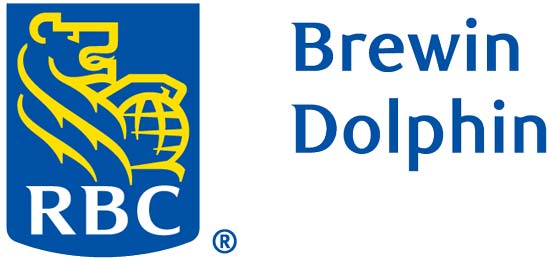This month:
Expert investment views:
One expert posits that cracks are starting to show in the global economy and the recent stress in the banking sector has tipped the balance towards recession
On the flipside, another is hopeful that the UK will dodge a recession this year, with falling inflation also proving positive
European medtech stocks, meanwhile, are highlighted as having strong growth potential after a tough 2022
Featuring this month’s experts:



1. The global economy has been more resilient than thought. Can it last?
The consensus last year was that Europe will enter a recession because of the energy crisis. While there was less conviction on a US recession, the extreme inversion of the yield curve and the plunge in stock prices suggested markets were nervous. Fast-forward to the start of this year and economists were busy revising up their 2023 growth forecasts.
This benign assessment is being challenged again following the recent banking sector turmoil. Banks are now likely to focus on bolstering their balance sheets, shoring up capital, tightening credit standards and dialling back on risk-taking. This may lead to lower availability and higher cost of credit.
Figures show US money supply growth is now -1.7% year-on-year, a dramatic slowdown from almost 27% at the height of the pandemic. Money supply growth typically leads inflation, so this reversal points to slower inflation, which is heading in the right direction. On the flipside, slower money supply growth indicates slower economic activity ahead.
Although economic data has been more resilient than expected, the cracks in the economy from higher interest rates are starting to emerge and the recent stress in the banking sector has tipped the balance more towards a recession than otherwise
Consumers’ disposable income has plunged since the post-pandemic re-opening. Households have plugged that gap via borrowing. US credit card debt jumped by the most on record in the fourth quarter of 2022, while the household savings rate plunged from 33.8% in 2020 to a low of 2.4% in 2022.
Although economic data has been more resilient than expected, the cracks in the economy from higher interest rates are starting to emerge and the recent stress in the banking sector has tipped the balance more towards a recession than otherwise.

Janet Mui
Head of Market Analysis at RBC Brewin Dolphin
2. Green shoots in the UK economy
Consumer confidence plummeted throughout 2022, reaching its lowest level since records began in 1974. Consumer confidence is crucial because it gives an indication of the spending intentions of UK households and is a bellwether for future economic growth.
However, there is evidence of green shoots appearing in the UK since the start of 2023. The Office for National Statistics reported that the UK narrowly avoided a recession in the fourth quarter of 2022 and returned to growth in January 2023 after posting a month-on-month GDP increase of 0.3%.
Consumer confidence meanwhile rose in February, with a further increase in March. The job market remains robust; unemployment is low at 3.7%, and the average hourly earnings increased 6.7% in the fourth quarter of 2022, providing a strong backdrop for the UK consumer.
Goldman Sachs have revised their inflation forecast, predicting it will drop from 10.4%in the fourth quarter of 2022 to 2.7% by the end of 2023
Additionally, there was an increase in job participation figures. With improving workforce participation, economic growth should follow, and wage inflation pressures should begin to ease. A surprise inflation print of 10.4% year-on-year means the inflation outlook remains cloudy, but disinflation trends may gain momentum in the upcoming summer months. Goldman Sachs have revised their inflation forecast, predicting it will drop from 10.4%in the fourth quarter of 2022 to 2.7% by the end of 2023.
Chancellor Jeremy Hunt’s first full budget included measures such as extending the energy price guarantee for an additional three months, and free childcare to all children from the age of nine months to four years old, a move that should help entice more people back to work in the longer term. Crucially, it looks likely the UK will avoid a recession this year. This, coinciding with inflation falling, is positive for the UK.

Colin MacKenzie
Director, Investment Management at Arbuthnot Latham & Co., Limited

Top Tip

Lee Goggin
Co-Founder
3. European medtech offers an interesting investment opportunity
Investors trying to navigate the inflection points of the economic growth slowdown, and peaking interest rates, against a backdrop of falling but stubborn inflation are struggling to find attractive investment opportunities.
One area we think looks interesting is investing in European medtech stocks. After a tough year in 2022, the outlook for medtech stocks is improving. We expect recent outperformance to continue, supported by a more stable hospital operating environment, improving consumer confidence, and lower inflation. We think the bulk of the US interest rate cycle is behind us and interest rates are nearing their peaks.
We expect recent outperformance to continue, supported by a more stable hospital operating environment, improving consumer confidence, and lower inflation
We see European pharma stocks as a source of funds. Pharma’s defensive profile, high US dollar exposure, and relief that US drug pricing reform was not too onerous led to outperformance in 2022. But last year’s macro tailwind is this year’s headwind, and the first tangible steps toward US drug price negotiation may present an unwelcome headline later this year. Our global and European strategists have downgraded healthcare, reflecting this macro shift and the sector’s significant weighting toward pharma stocks.
How to invest. We recommend investing in the MSCI Europe Health Care Equipment and Supplies index, funded by reducing exposure to the MSCI Europe Pharmaceuticals index. Investors with a longer horizon or a more global perspective should also consult our “Medical devices” longer-term investment theme.

Caroline Simmons
Chief Investment Officer UK at UBS Global Wealth Management
Important information
The investment strategy and financial planning explanations of this piece are for informational purposes only, may represent only one view, and are not intended in any way as financial or investment advice. Any comment on specific securities should not be interpreted as investment research or advice, solicitation or recommendations to buy or sell a particular security.
We always advise consultation with a professional before making any investment and financial planning decisions.
Always remember that investing involves risk and the value of investments may fall as well as rise. Past performance should not be seen as a guarantee of future returns.



